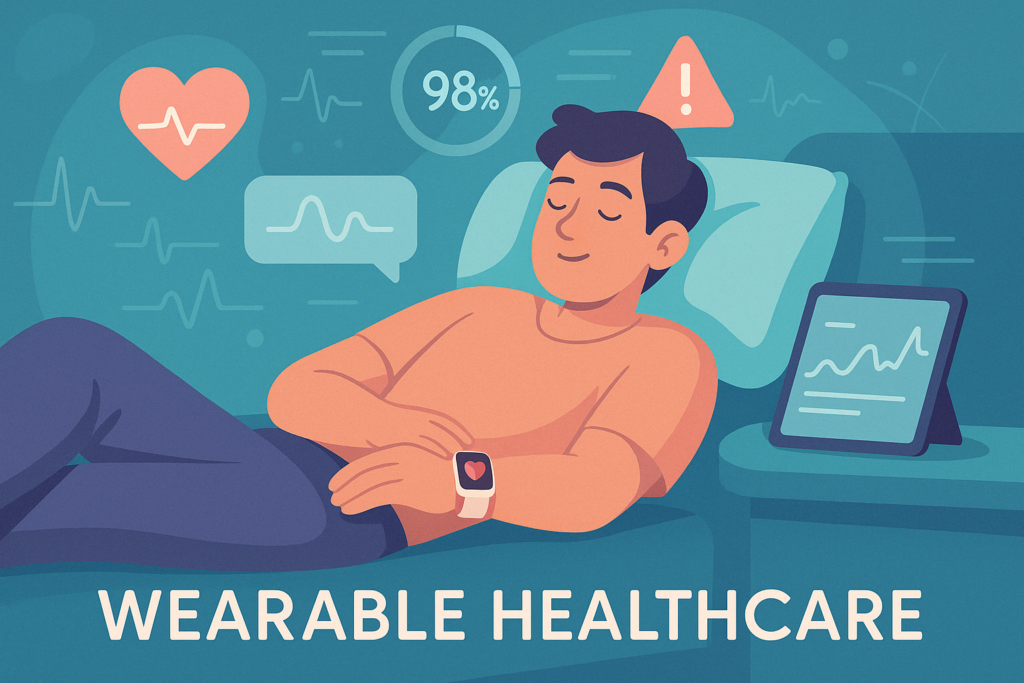Let’s be honest—healthcare used to mean sitting in a waiting room, flipping through outdated magazines, and hoping a doctor could squeeze you in. Fast forward to 2025, and now your wrist can tell you more about your body than a checkup used to. Yep, wearable technology is flipping healthcare on its head—in the best way.
From smartwatches that nudge you to breathe (rude, but necessary), to medical wearables that can literally alert your doctor mid-scroll, we’re officially living in the future. And spoiler alert: it’s pretty amazing.
Smartwatches: No Longer Just for Telling Time
Back in the day, a watch told time. Now? It tells you your resting heart rate, your stress levels, whether you slept like a rock or like someone being chased in a dream, and even if your blood oxygen is a little off.
Smartwatches in 2025 have gone full health nerd, and we’re here for it. They don’t just count steps—they analyze your workouts, track your heart rate variability, and ping you if something’s off. Some can even detect signs of atrial fibrillation and suggest you check in with a doc. So yeah, they’ve graduated from fancy pedometers to pocket-sized health coaches.
Medical Wearables: The Undercover Heroes
While smartwatches get all the glam, medical wearables are doing some seriously heavy lifting behind the scenes.
Think smart rings that track sleep cycles with scary precision, glucose monitors that keep diabetics stable without finger pricks, and skin patches that can monitor dehydration or even deliver medication. Some wearables are even being used in post-surgery recovery, helping doctors monitor patients remotely and intervene early if anything goes sideways.
It’s not science fiction anymore. It’s wearable, walk-around-all-day, forget-you’re-even-wearing-it science fact.
Health Tracking: Data is the New Doctor
Okay, not literally—but health tracking is giving people control over their wellness in a way we’ve never seen before.
You don’t need to wait for something to feel wrong anymore. With all the data wearables track—sleep, heart rate, breathing, movement—you can see patterns, get nudges when something’s off, and spot problems early. Really early.
It’s not just for fitness junkies either. Whether you’re managing anxiety, trying to catch more sleep, or just wondering why you feel off, tracking your health daily means no more guessing games. You’ve got receipts.
From “Sick Care” to “Health Care”
Here’s the game-changer: wearable tech is making healthcare less about reacting and more about preventing.
Instead of waiting until you’re coughing up a lung to visit the doctor, your smartwatch might buzz and say, “Hey, your heart rate’s been weird lately. Maybe check that out?” That’s a shift from “fixing problems” to “avoiding them altogether”—and it’s saving lives.
And for people managing chronic conditions like heart disease or diabetes, this kind of continuous monitoring is a lifeline. They get support, alerts, and info every day, not just during their next appointment.
Healthcare Is Getting Personal—In a Good Way
Because wearable data can now be shared directly with healthcare providers (with your permission, of course), doctors aren’t relying on that one-off blood pressure reading anymore. They’re looking at trends, real-life data, and daily insights from your wearables to personalize care.
It’s also helping people in rural areas or with limited mobility stay connected to healthcare pros without schlepping to a clinic every week. You live your life; your data does the talking.
Not Just a Trend—This Is the Future
Some people still think wearables are a passing trend, like fidget spinners or oat milk (okay, oat milk stuck around). But wearable tech is deeply woven into the future of healthcare.
Hospitals are using it for post-op monitoring. Employers are offering wellness programs that include wearable devices. And as the tech gets smarter, cheaper, and more discreet, it’s becoming a standard part of how we care for ourselves.
What started with counting steps has now turned into full-on preventive healthcare, available 24/7, no appointment needed.
The Bottom Line (on Your Wrist)
Wearable technology is revolutionizing healthcare not just because it’s cool or convenient—but because it’s empowering. It’s putting knowledge in people’s hands, literally. Whether it’s a smartwatch reminding you to stand up, a ring tracking your stress, or a patch keeping tabs on your glucose, these devices are reshaping how we think about wellness.
And hey—if your watch can save your life while you’re binge-watching a series and eating nachos, that’s a win.


